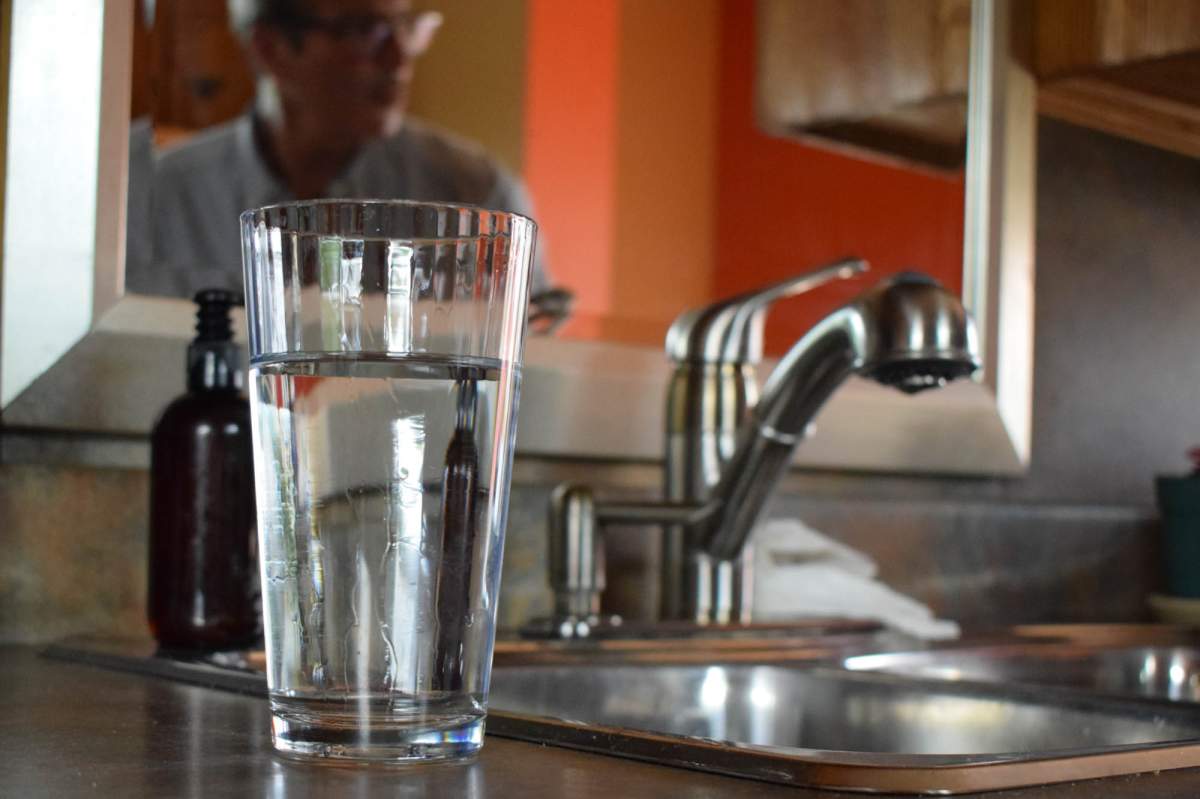Halifax Water is considering an expensive proposal to speed up the replacement of its customers’ underground lead pipes in the wake of a groundbreaking investigation, exposing widespread risk of contaminated tap water in hundreds of thousands of homes in Nova Scotia and across Canada.

The utility board will review a report during a meeting on Thursday that cites the Tainted Water series as an impetus for the recommended course of action.
The new plan would cost $14 million, but save money in the long run, the report said.
The document states that within four days of the investigation’s publication in early November, “customer requests for information increased from about 2-4 per day to 100 per day.”
The following week, it adds, Halifax Water experienced a 241 per cent increase in web traffic associated with lead.
READ MORE: In Halifax, more than 100 schools on municipal water systems still haven’t tested for lead
“This is really great. I hope it’s contagious across Canada,” said Michèle Prévost, a Polytechnique Montréal engineering professor with expertise in lead and drinking water, responding to the report.
“The only way to get down to the numbers that Health Canada is guiding us to is to remove the pipes.”
Earlier this year, Health Canada recommended increasing restrictions on the limit for lead in drinking water — from 10 parts per billion (ppb) to five ppb. Lead is a dangerous neurotoxin, linked with renal dysfunction, high blood pressure, decreased IQ and other complications.
In November, the Tainted Water investigation published by Global News and Star Halifax revealed nearly a quarter of a million Nova Scotians were at risk of lead exposure through their private wells, and nearly a third of tap water tests conducted by Halifax Water since 2012 have exceeded the national guideline for lead.
The lead leaches into the water from a variety of sources, including the underground lead pipes called lead service lines, which link homes to city water mains or wells.
Lead can also leach into water from lead solder or some plumbing fixtures that contain traces of the neurotoxin inside homes.
The Tainted Water series is part of the largest journalism collaboration in Canadian history, conducted in partnership with media partners including Star Halifax, reporting students at the University of King’s College and other schools, and the Institute for Investigative Journalism based at Concordia University in Montreal.

Get weekly health news
Over the past year, the investigation reviewed more than 79,000 water tests in more than two dozen cities across the country, and found hundreds of thousands of Canadians could have been unwittingly exposed to lead — some in concentrations consistently higher than those at the peak of the water crisis in Flint, Mich.
Flint’s crisis sprang from a decision to draw water from a more corrosive water source into an old and deteriorating lead pipe infrastructure.
The result was a perfect public health storm. Headlines around the world highlighted not just lead-contaminated drinking water, but the death of 12 people from a Legionnaires’ disease outbreak as bacteria spread through the water system.
In Canada, the reporting by Global News and its partners has triggered policy change and promises to improve and expand testing of tap water in Quebec, and in Regina — which had some of the highest lead levels in the country — a commitment from the mayor to speed up lead service line replacements.
Some municipalities, such as Côte Saint-Luc and Montreal in Quebec, have also promised to offer free water filters for affected residents.
READ MORE: McNeil calls lead investigation ‘concerning’ but defers commitment to act
In Halifax, the utility has provided a 25 per cent rebate to customers who replace their own lead service lines, but uptake has been slow. Many customers have chosen not to replace them due to the cost, which can be $10,000 before the rebate.
Sheila Blair-Reid wanted the lead pipes removed from her south-end Halifax home last year, but declined when she received a $15,000-estimate for the removal thanks to front stone steps that would need to be moved. She thought then that Halifax Water should front the costs, and on Wednesday, said she was “thrilled” by the proposal before the utility’s board.
“It’s fantastic. We shouldn’t be drinking lead. We would totally reconsider our decision knowing they would be more participatory in the cost.”
READ MORE: Mayor wants to get rid of lead pipes in Regina by 2025
Spending the extra millions to do this work for 3,500 private lead service lines in the city by 2039 would create “positive public perception,” says the report by water quality manager Wendy Krkosek, and is the “most protective of public health.”
It would allow Halifax Water to “target renewals in sensitive populations” where the health risk may be greatest and control the timeline of replacements. That would help it avoid expensive repair work that could arise from a homeowner ripping up pavement when doing the work at their leisure.
“Customer response to recent media attention to lead in drinking water as a public health issue shows the public’s concern over this issue and the need for utility action to remove barriers to private uptake of LSLR (lead service line renewal),” writes Krkosek.
“To remain a leader and take a proactive approach to getting the lead out, to protect public health, and to achieve program goals, Halifax Water needs to enhance the LSLR program.”
The total cost to replace an estimated 2,000 public, and 3,500 private lead service lines in the next two decades would be roughly $38.5 million.
If approved, the work would get done 11 years ahead of target. as well: the initial goal for all lead service line replacement in the municipality was 2050.
The report also appeared to indicate that the city was behind schedule on its 2050 goal, estimating that under its existing plan, it wouldn’t complete private lead pipe replacements until 2063.












Comments
Want to discuss? Please read our Commenting Policy first.